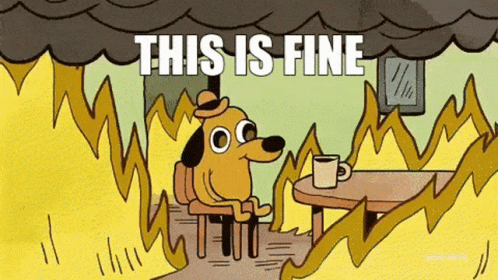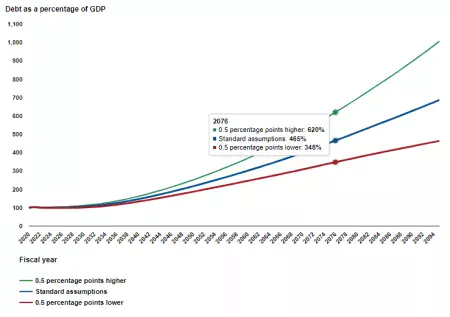Spending is actually pretty muted, though of course there was a jump related to the pandemic, and debt burden is not at all concerning for America. Here's debt service to GDP:

You can see that the last time it was concerning was in the late '80s to early '90s. And even then it wasn't like a big crisis (how many people even know about that?). The assertion that higher inflation is needed to maintain growth "that people are used to" doesn't really make any sense since we generally mean real (i.e, inflation-adjusted) growth when we talk about that, and if the suggestion is that higher inflation is needed to boost demand, that is also wrong, as we are dealing now with excess demand (which is why the Fed is tightening and lawmakers are reducing deficits (that was the inflation-fighting aspect of the IRA). Living standards are continuing to rise, though the increase has been more equal since the late Aughts, which has some people panicking. SS should be beefed up, and Medicare should be more widely available, and I think both of those fixes are coming.





